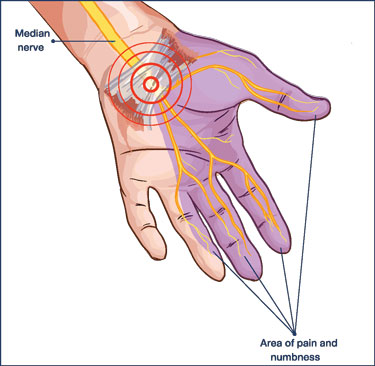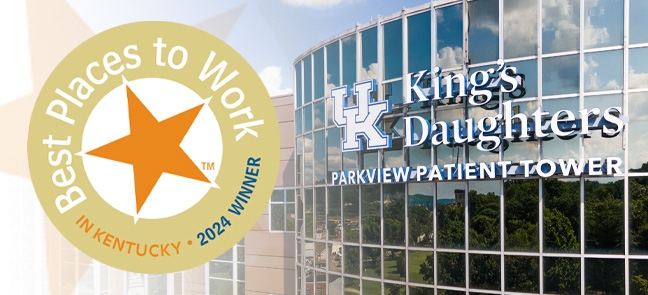Neurosurgeon offers carpal tunnel surgery
- Category: Blog, Neuromedicine, News, Surgery
- Posted On:
- Written By: King's Daughters Health
 Carpal tunnel syndrome – numbness, tingling, weakness, and other problems in one or both hands – is caused by pressure on the median nerve in your wrist. This nerve, and several tendons, run from the forearm into the hand through a small opening in the wrist called the carpal tunnel.
Carpal tunnel syndrome – numbness, tingling, weakness, and other problems in one or both hands – is caused by pressure on the median nerve in your wrist. This nerve, and several tendons, run from the forearm into the hand through a small opening in the wrist called the carpal tunnel.
The median nerve controls movement and feeling in the thumb and first three fingers. Symptoms most often occur in the thumb, index finger, middle finger, and half of the ring finger.
Patients often experience symptoms at night, which may be relieved by shaking the hand. Most people with carpal tunnel syndrome can be treated without surgery. Surgery is considered only when:
- Symptoms haven't improved after several months of nonsurgical treatment.
- Severe symptoms restrict normal daily activities.
- There is damage to the median nerve (shown by nerve test results and loss of hand, thumb, or finger function) or a risk of damage to the nerve.
A nerve conduction test and EMG can be ordered by your physician to determine if there has been damage.
Surgery choices
Carpal tunnel release involves cutting the transverse carpal ligament to relieve pressure on the median nerve. This surgery may be performed as an “open” procedure or endoscopically. Many patients prefer the minimally invasive approach because recovery is quicker, scars are smaller, and there is less discomfort following surgery. However, there may be a slightly increased risk of need for a future surgery.
Carpal tunnel release is one of the most commonly performed surgical procedures in the U.S. It is usually done under local or regional anesthesia and does not require an overnight hospital stay.
Following surgery, the ligaments usually grow back together and allow more space than before. Although symptoms may be relieved immediately after surgery, full recovery can take months.
King’s Daughters neurosurgeon Michael Weicker, M.D., performs endoscopic carpal tunnel release surgery. For more information, please call the office at (606) 329-1770.


